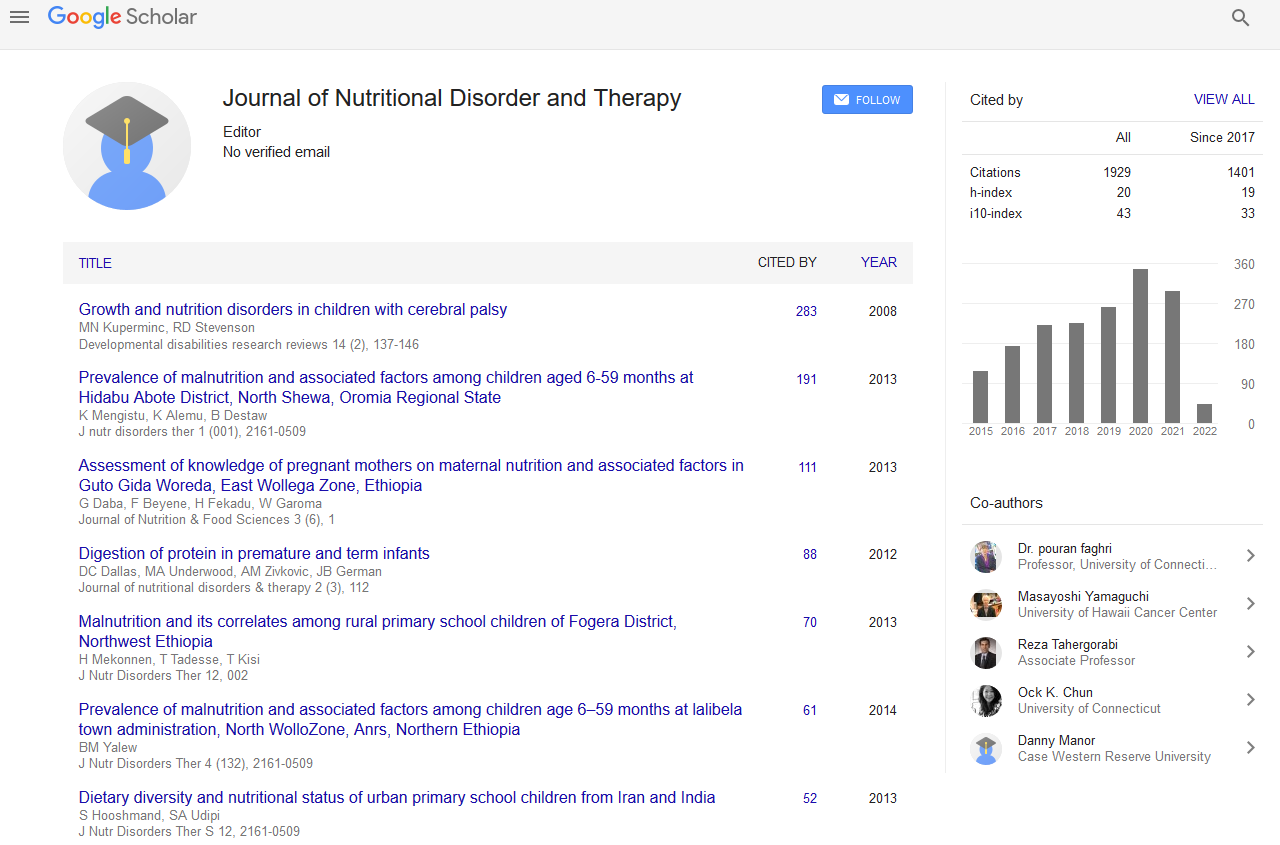Indexed In
- Open J Gate
- Genamics JournalSeek
- Academic Keys
- JournalTOCs
- Ulrich's Periodicals Directory
- RefSeek
- Hamdard University
- EBSCO A-Z
- OCLC- WorldCat
- Publons
- Geneva Foundation for Medical Education and Research
- Euro Pub
Useful Links
Share This Page
Journal Flyer

Open Access Journals
- Agri and Aquaculture
- Biochemistry
- Bioinformatics & Systems Biology
- Business & Management
- Chemistry
- Clinical Sciences
- Engineering
- Food & Nutrition
- General Science
- Genetics & Molecular Biology
- Immunology & Microbiology
- Medical Sciences
- Neuroscience & Psychology
- Nursing & Health Care
- Pharmaceutical Sciences
Abstract
Exploring Vitamin B12 Deficiency in Sleeve Gastrectomy from a Histological Study of a Cadaveric Stomach and Ileum
Dwaipayan Muhuri, Gyorgy Nagy, Velma Rawlins, Lisa Sandy and Peter Bellot
Introduction: Vitamin B12 Deficiency is more commonly found amongst patients who have undergone Roux-en- Y Gastric Bypasses (RYGB) as compared to those post-Sleeve Gastrectomies (SG). The major difference between SG and RYGB is that the latter greatly bypasses the stomach, whereas the former simply reduces the gastric volume.
Purpose: The aim of this paper is to study the stomach and distal ileum, histologically, in a cadaver with SG to explain the higher rate of incidences of B12 deficiency seen in patient’s post-RYGB relative to patient’s post-SG. Since the stomach is the major variable in the two procedures, we hypothesize that it has the ability to regenerate and increase its surface area to compensate for the loss of its volume in SG patients.
Material and Methods: Tissue biopsies and Hematoxylin and Eosin stains were performed from various anatomical locations of the GI tract, specifically, the fundus, the body, and the antrum of the stomach and from the distal ileum of the small intestine of a cadaver with SG and one without (control).
Results: Compared to the control, the SG cadaver's gastric tissue biopsies were significant for chronic gastritis and hypertrophy of the muscularis externa layer. More importantly, parietal cell hyperplasia and deeper mucosal glands were also noted in the SG cadaver supporting the hypothesis.
Conclusion: The compensatory role of an intact stomach, given its ability to regenerate parietal cells and increase its number in the gastric fundus and body, can be better appreciated in a gastric-sparing procedure such as SG versus RYGB in terms of limiting B12 deficiencies.


